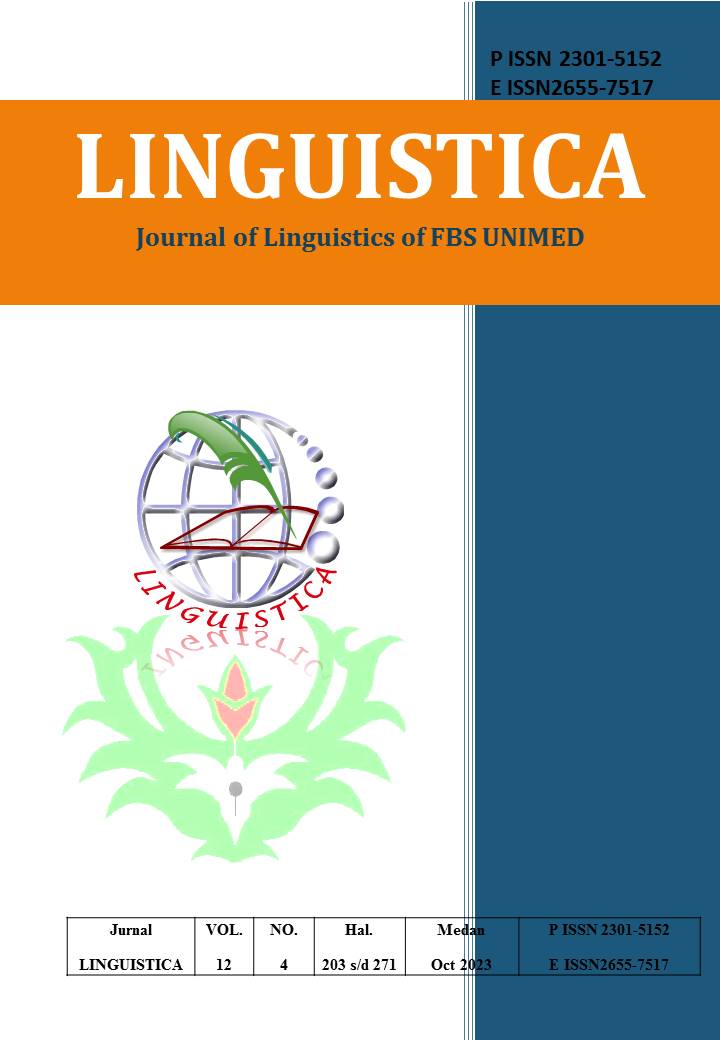BEAUTY MYTH AND FEMALE RESISTANCE IN THE MOVIE I FEEL PRETTY
DOI:
https://doi.org/10.24114/jalu.v12i4.52492Abstract
This paper aims to describe the beauty myth and the female resistance in the movie I Feel Pretty. This research uses gender study which focuses on beauty myth and the female resistance towards the beauty myth. The object material in this study is a chick lit movie, I Feel Pretty. The formal object of this research is gender study that focuses on beauty myth. Data analysis was performed through qualitative descriptive techniques by interpreting the data found in the movie I Feel Pretty and linked to beauty myth theories. Beauty myth has been promoted through the mass media, including the movie I Feel Pretty. However, there are also various forms of resistance performed by the female character to challenge the beauty myth and promote a more inclusive and diverse definition of beauty. This paper tries to highlight some resistances towards beauty myth in this movie, which are being confident, being passionate, and having a good personality. This research eventually finds out that having these traits is a form of resistance against the normalized unreasonable beauty standard.Downloads
Published
2023-10-31
Issue
Section
Articles
License
Copyright (c) 2023 SISWANTIA SAR, WITA DWI PAYANA, RAHIL HELMI

This work is licensed under a Creative Commons Attribution-ShareAlike 4.0 International License.
Authors who publish with this journal agree to the following terms:
- Authors retain copyright and grant the journal the right of first publication with the work simultaneously licensed under a Creative Commons Attribution License that allows others to share the work with an acknowledgment of the work's authorship and initial publication in this journal.
- Authors are able to enter into separate, additional contractual arrangements for the non-exclusive distribution of the journal's published version of the work (e.g., post it to an institutional repository or publish it in a book), with an acknowledgment of its initial publication in this journal.
- Authors are permitted and encouraged to post their work online (e.g., in institutional repositories or on their website) prior to and during the submission process, as it can lead to productive exchanges, as well as earlier and greater citation of published work (See The Effect of Open Access).
- This work is licensed under a Creative Commons Attribution-ShareAlike 4.0 International License.

